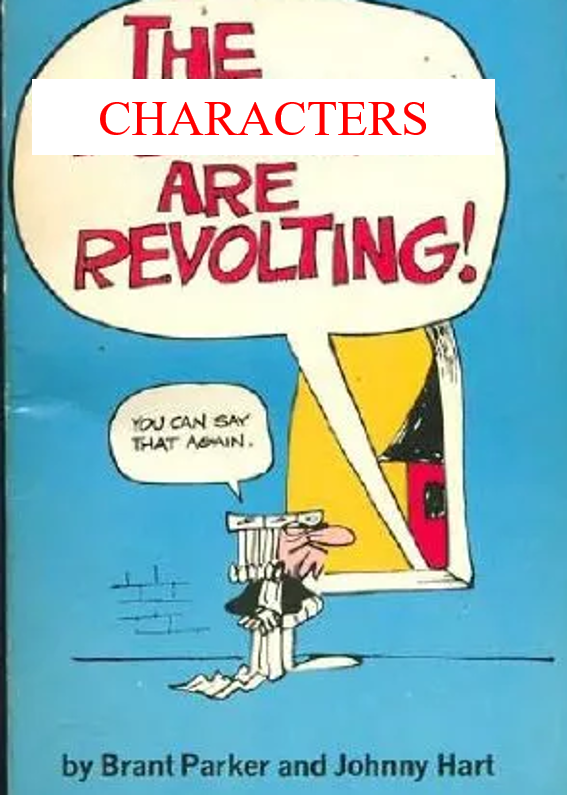
Image: The Wizard of ID, The Peasants Are Revolting
I have a serious problem, with revolting characters.
Upon starting to write fiction, I discovered that there are several different ways to plan out a story. The most logical is just that. Write down an outline of how the tale will unfold, then fill in the details. At the other end of the spectrum is what’s called the “discovery” method. Which just means the author starts typing without much of an idea of what will come next.
Outliners are colloquially known as “planners”. Discovery writers wear the titles of “pantsers.” Which refers to flying by the seat of your pants, not the recently dank (and unlamented) middle school prank of unexpectedly pulling someone’s pants down in public. If you employ some combination of the two, you’re a “plantser.” I didn’t make these terms up, and I wish no one else had. But we’re apparently stuck with them.
Hi, my name is Ray. And I’m a pantser. I’ve tried to outline, and, so far, it hasn’t worked for me. Outlining is drudgery, in my humble, ignorant opinion. Discovery writing seems like surfing an endless wave. Maybe it’s not always a perfect wave, but she is fun. However, there is one fly in the ointment, one cloud in my perfect sky. I have found that typing by the seat of my pants runs the risk of revolying characters. That is, when my characters stage a revolt.
Theoretically, I am in charge of what ends up on the page. Practically, sometimes a fictional character digs in his or her heels, and shouts, NO!
I am not a pure pantser. I do have some idea of where the story is headed. Usually, I have a beginning, and a vague impression of the ending. Which often results in writing the start, and the finish, then working my way to the middle from both ends, much like the Central Pacific and Union Pacific Railroads met at Promontory, Utah. On the way to driving that golden spike, though, any of a number of the nominally imaginary people flowing onto the page can gum up the works quite easily.
There must be some mild form of temporary schizophrenia which afflicts the writer, and allows him to speak with multiple voices and act with disparate wills in the production of a story. Occasionally, things get a little bit out of hand, and the fictional character says, “No, I wouldn’t do that. This is what I’m going to do instead.” I’ve experienced it a number of times in writing six novels. Two notable examples stand out.
My main character and a minor were arguing. Things grew heated. Suddenly, the minor character simply walked out. By the end of the paragraph, I realized with a shock that he wasn’t coming back. I sort of had a tragically ignored voice-of-reason role for him through the rest of the book. The way I’d written him up to that point, he wasn’t the type to stick around for that. His departure caused hardships for the main character, which ironically made for a better story. The minor character did return much later, after his illusions had been shattered by following his principles into trouble. He redeemed himself with sacrifice.
In another work, the main character started of a chapter headed for a break up. She was supposed to decide he wasn’t really boyfriend material, let alone husband material. This was to be precipitated by the harrowing events of the previous chapter. Instead, the two ended up engaged. Halfway through the argument, they realized they belonged together, despite their differences. I had to deal with this twist, but, again, it resulted in a better story.
Do the characters of planners rebel, as well? I couldn’t tell you. All I know is hat sometimes the people in my head stage a revolt. Perhaps I am weak. Maybe I should reach for the imaginary whip and cattle prod to force my characters into the cages I’ve built for them. But usually, I just don’t have the heart. And, so far, that has proven to be the right move. It reminds me of that Shakespeare line. “Treason never prospers. Because if it does, none dare call it treason.”
